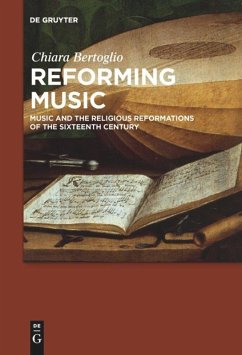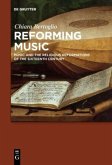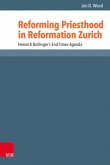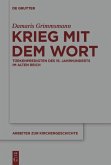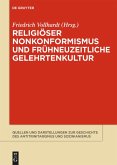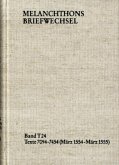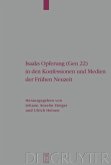Five hundred years ago a monk nailed his theses to a church gate in Wittenberg. The sound of Luther's mythical hammer, however, was by no means the only aural manifestation of the religious Reformations.
This book describes the birth of Lutheran Chorales and Calvinist Psalmody; of how music was practised by Catholic nuns, Lutheran schoolchildren, battling Huguenots, missionaries and martyrs, cardinals at Trent and heretics in hiding, at a time when Palestrina, Lasso and Tallis were composing their masterpieces, and forbidden songs were concealed, smuggled and sung in taverns and princely courts alike.
Music expressed faith in the Evangelicals' emerging worships and in the Catholics' ancient rites; through it new beliefs were spread and heresy countered; analysed by humanist theorists, it comforted and consoled miners, housewives and persecuted preachers; it was both the symbol of new, conflicting identities and the only surviving trace of a lost unity of faith.
The musicof the Reformations, thus, was music reformed, music reforming and the reform of music: this book shows what the Reformations sounded like, and how music became one of the protagonists in the religious conflicts of the sixteenth century.
This book describes the birth of Lutheran Chorales and Calvinist Psalmody; of how music was practised by Catholic nuns, Lutheran schoolchildren, battling Huguenots, missionaries and martyrs, cardinals at Trent and heretics in hiding, at a time when Palestrina, Lasso and Tallis were composing their masterpieces, and forbidden songs were concealed, smuggled and sung in taverns and princely courts alike.
Music expressed faith in the Evangelicals' emerging worships and in the Catholics' ancient rites; through it new beliefs were spread and heresy countered; analysed by humanist theorists, it comforted and consoled miners, housewives and persecuted preachers; it was both the symbol of new, conflicting identities and the only surviving trace of a lost unity of faith.
The musicof the Reformations, thus, was music reformed, music reforming and the reform of music: this book shows what the Reformations sounded like, and how music became one of the protagonists in the religious conflicts of the sixteenth century.
"Any reader of this book cannot fail to be immeasurably enriched and pressed to re-think in quite radical ways why music matters, why it is vital that we see it flourish today - and perhaps most especially in the Church."
Jeremy Begbie
"The breadth of Reforming music is impressive. Whether it is Lutheran hymns, Calvinist metrical Psalms or post-Trent Catholic practice, Bertoglio has successfully woven the latest research with the magisterial scholarship on each topic. [...] Nevertheless, Reforming music is a valuable resource for students, researchers and enthusiasts looking to learn more about the Reformation and its impact on music."
Timothy Duguid in: Journal of Ecclesiastic History 70.3 (2019), 374-376
"Chiara Bertoglio has attempted to write a comprehensive introduction to sixteenth-century church music without a confessional bias. In this she has largely succeeded. [...] Because no other book attempts what this one does, it is a significant publication."
Joseph Herl in: Lutheran Quarterly 32.2 (2018), 92-94
"Overall, Bertoglio does a thorough job of presenting the overarching scope of musical development occurring in the sixteenth century. Some theologians may have squabbles over a few of her summaries of theological developments, but her broad strokes are accurate and the musical implications she discusses are often neglected by those who would debate the theological points. The book emphasizes the effects of the religious and cultural upheaval of the century upon music and strikes a healthy balance between depth and breadth."
Zachary Jones in: STR 9.1 (2018), 113-43
"Overall, this is a much-needed and thorough examination of ideas, genres, developments, and concepts related to music during the sixteenth century."
Branden Lee Eden in: Sixteenth Century Journal 49/1 (2018), 316-318
"L'ouvrage est surtout conçu pour donner un point de départ à de nouvelles recherches. Toutefois, plusieurs de ses aspects rend l'ouvrage particulièrement utile aux étudiants et aux enseignants. Tout d'abord l'ouvrage complet est si bien organisé qu'il est très facile à consulter. [...] Enfin, les expositions et la langue, sans compromis pour les contenus plus complexes, sont toujours très claires et efficaces. C'est pourquoi cet ouvrage de Chiara Bertoglio n'est pas seulement nécessaire et remarquable, il est également une leçon de musicologie."
Pascal Duhamel in: Renaissance and Reformation / Renaissance et Réforme 41.4 (2018), 208-212
Jeremy Begbie
"The breadth of Reforming music is impressive. Whether it is Lutheran hymns, Calvinist metrical Psalms or post-Trent Catholic practice, Bertoglio has successfully woven the latest research with the magisterial scholarship on each topic. [...] Nevertheless, Reforming music is a valuable resource for students, researchers and enthusiasts looking to learn more about the Reformation and its impact on music."
Timothy Duguid in: Journal of Ecclesiastic History 70.3 (2019), 374-376
"Chiara Bertoglio has attempted to write a comprehensive introduction to sixteenth-century church music without a confessional bias. In this she has largely succeeded. [...] Because no other book attempts what this one does, it is a significant publication."
Joseph Herl in: Lutheran Quarterly 32.2 (2018), 92-94
"Overall, Bertoglio does a thorough job of presenting the overarching scope of musical development occurring in the sixteenth century. Some theologians may have squabbles over a few of her summaries of theological developments, but her broad strokes are accurate and the musical implications she discusses are often neglected by those who would debate the theological points. The book emphasizes the effects of the religious and cultural upheaval of the century upon music and strikes a healthy balance between depth and breadth."
Zachary Jones in: STR 9.1 (2018), 113-43
"Overall, this is a much-needed and thorough examination of ideas, genres, developments, and concepts related to music during the sixteenth century."
Branden Lee Eden in: Sixteenth Century Journal 49/1 (2018), 316-318
"L'ouvrage est surtout conçu pour donner un point de départ à de nouvelles recherches. Toutefois, plusieurs de ses aspects rend l'ouvrage particulièrement utile aux étudiants et aux enseignants. Tout d'abord l'ouvrage complet est si bien organisé qu'il est très facile à consulter. [...] Enfin, les expositions et la langue, sans compromis pour les contenus plus complexes, sont toujours très claires et efficaces. C'est pourquoi cet ouvrage de Chiara Bertoglio n'est pas seulement nécessaire et remarquable, il est également une leçon de musicologie."
Pascal Duhamel in: Renaissance and Reformation / Renaissance et Réforme 41.4 (2018), 208-212

